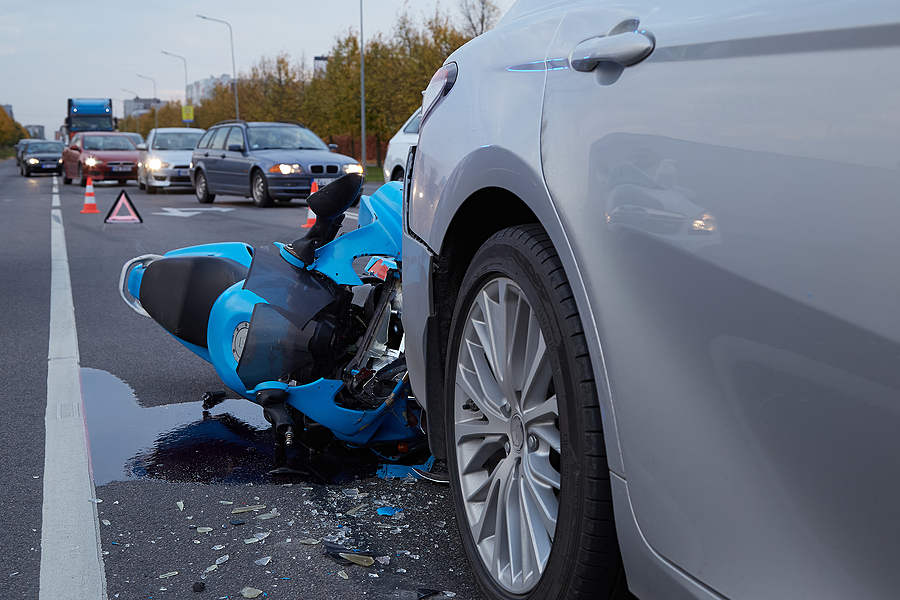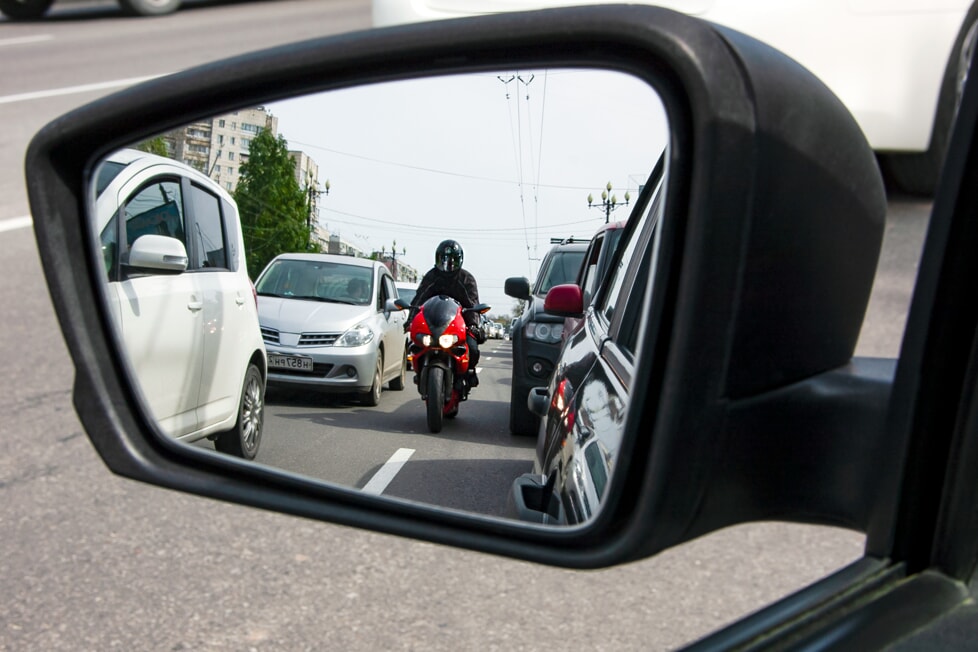Excited about getting your first motorcycle? Before you hop on your new ride, please take some time to learn how to safely ride. We have a quick list of 9 safety tips that every new rider should know. And if you ever find yourself in Chesapeake motorcycle accidents, consult a Chesapeake motorcycle accidents lawyer to protect your legal rights.
- Buy a right-sized bike – Find a bike that fits you, both in size and power. If you purchase an overpowered ride, you could fly right off the first time you hit the throttle. There are plenty of motorcycles modeled to look sleek and intimidating without going overboard on the strength of the engine, which creates an awesome ride built for transportation more than recreation.
- Upgrade to antilock brakes – You might already have antilock brakes in your car. Adding them to your motorcycle will make it practically impossible to lock up your brakes when you have to stop in a hurry. Locking your brakes can cause your motorcycle to buck you off, throwing you into traffic instead of bringing you to a safe stop. The Insurance Institute for Highway Safety (IIHS) estimates that antilock brakes reduce a rider’s chances of getting into a crash by an impressive 37%.
- Wear a helmet – Crash data routinely shows that motorcycle helmets save lives. Without a helmet, you are 40% more likely to die from a head injury and 300% more likely to suffer a nonfatal but permanent brain injury in a motorcycle accident. Purchase a U.S. Department of Transportation-approved motorcycle helmet, make certain it fits you well, and wear it each and every time you ride your motorcycle. You need a helmet even for short trips to the neighbor’s house or across town, too.
- Don protective clothing – Your head is not the only body part that needs to be protected from injury in a motorcycle crash. Wear comfortable yet protective clothing whenever you ride. Thick jackets, jeans, boots, gloves, and goggles are all easy ways to help prevent serious injuries like road rash in a wipeout without even needing to buy specialized gear.
- Practice to be perfect – If you are starting out as a new or returning rider, then you should take some time to practice in safe, controlled environments, like empty parking lots. The more your practice, the more your riding skills will improve. You can also sign up for a safety course hosted by the Motorcycle Safety Foundation (MSF), which is a national, not-for-profit group dedicated to making all riders as safe as they can be. They have many locations across the country, so there is probably a course near you being hosted soon.
- Ride defensively – By many estimates, more than half of all motorcycle accidents are caused by a negligent driver who hits the rider. You need to stay aware of other motorists around you when you ride, give them space as you would if you were in a full-sized vehicle, and ride defensively. Many motorists do not think to look for a smaller vehicle when checking blind spots and mirrors, so keep that in mind when you ride.
- Rain delay – Driving in harsh weather is dangerous, no matter what vehicle you are using. However, heavy rain, snow, sleet, hail, and other inclement weather are even more dangerous to motorcycle riders. The lighter frames and two wheels of the average motorcycle are more likely to lose control in bad weather and strong gales. If you can wait until the weather passes to go riding, then wait it out.
- Slow down near roadway hazards – Just like how bad weather can cause a wipeout on your motorcycle, so can bad road conditions. The tiniest obstacles like wet leaves, debris, sand, little potholes, etc. can get largely ignored by cars and trucks, but they can flip or skid a motorcycle without warning. When you see a potential hazard on the road in front of you, slow down if it is safe to do so.
- Pre-ride checklist – Lastly, take a minute or two before any ride, regardless of length, to check out your motorcycle for any issues. Key things to give a look over include your turn signals, lights, horn, brakes, tire chains, and belts. Don’t forget the tires themselves. Pay attention to how they look to see if they need to have their pressure adjusted up or down.
BE SAFE SO YOU DON’T BECOME OUR CLIENT
At Huffman & Huffman, we represent clients throughout Virginia who have been seriously injured in motorcycle accidents. We have seen far too many times how devastating a crash can be, especially one that could have been prevented with a little more care to safety. Please be safe on the roads, wherever you travel. If you do get into a motorcycle crash that was not your fault, though, remember that we can help you create a claim and seek compensation from the party that caused your accident, also you can check articles about motorcycle accidents. Just call us at (757) 599-6050 whenever you need us.
 Text Us
Text Us  Call Us
Call Us 







